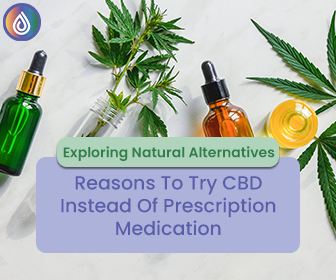5 Mistakes You May Be Making If You Have Sensitive Skin
You merely glance at your face in the mirror, and you see something wrong – your skin erupts in redness, stinging, burning, or itching. That’s how daily life can feel at least when you have sensitive skin. Genetics plays a role in your risk of sensitive skin, too. No matter where you land on the sensitive skin scale — diagnosed skin condition or not — you’re going to want to re-evaluate your skincare routine. Today, we will give you common mistakes to avoid if you have sensitive skin.
First, we will take a look at relying on “clean” products and using skincare products that are too harsh. Next, we will discuss using too many skincare products. Then, we will discuss relying on retinol, and we’ll wrap things up with the wrong type of sunscreen. Once you have finished reading, you will be able to avoid these common mistakes people with sensitive skin make.
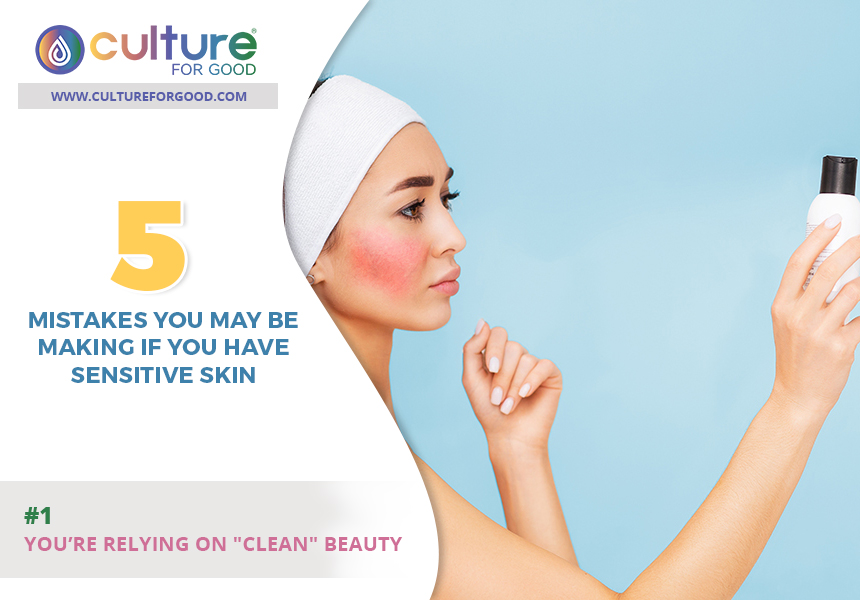
1You’re Relying On “Clean” Beauty
If you’ve seen the call to practice so-called “clean” or natural beauty, you might be tempted to toss your existing products in favor of organic options, which many people think are the best for sensitive skin. But that’s not true. These are ingredients that you can have allergic or irritant reactions to, just as you can for any other ingredient.
What’s more, clean or natural are marketing terms that are not regulated, so they don’t guarantee anything about the ingredients inside. One big offender in these products: essential oils. People run into problems with tea tree oil or lavender oil. The solution is to stick to tried-and-true brands for sensitive skin, like Dove, Eucerin, Vaseline, First Aid Beauty, and Skinfix. These brands focus on creating non-irritating products that are often fragrance- and dye-free and hypoallergenic.
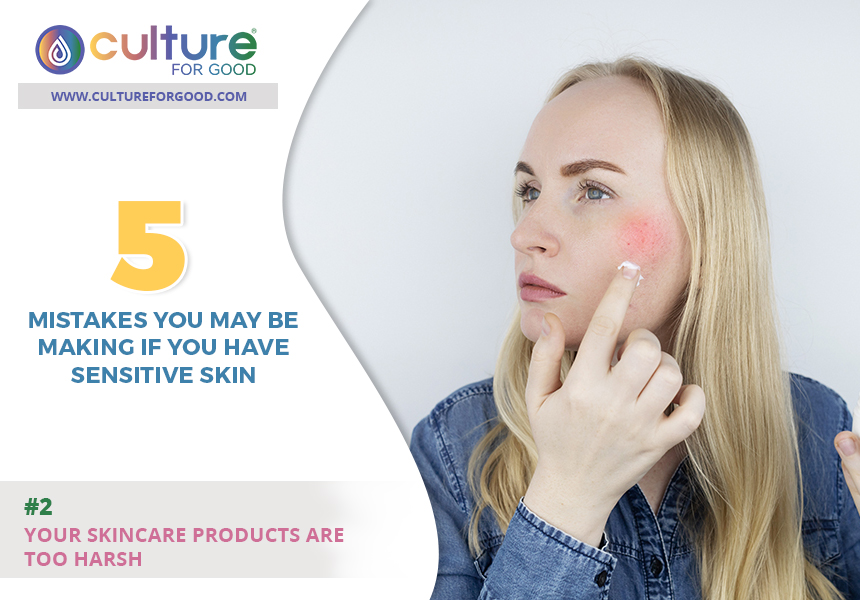
2Your Skincare Products Are Too Harsh
When cleansing your skin, aim for gentle, gentle, gentle. Using an exfoliating cleanser is going to be too much for sensitive skin, even if it feels like you need these. Examples of ingredients found in a cleanser that exfoliates are alpha hydroxy acids, like glycolic acid, and physical exfoliators, like a facial scrub made with granules.
When it comes to getting rid of wrinkles or acne, we sometimes feel like scrubbing is the best solution, but over-exfoliation will disrupt the skin’s barrier and make the symptoms worse. To that point, washing with a soap-based cleanser will also disrupt the skin’s barrier and irritate sensitive skin. The solution is to stick to a fragrance-free non-soap cleanser. Look for any of the following on the label: pH-neutral, non-soap, hypoallergenic, gentle, or sensitive skin. Using a washcloth only will provide a light touch of exfoliating friction to slough off dead cells.
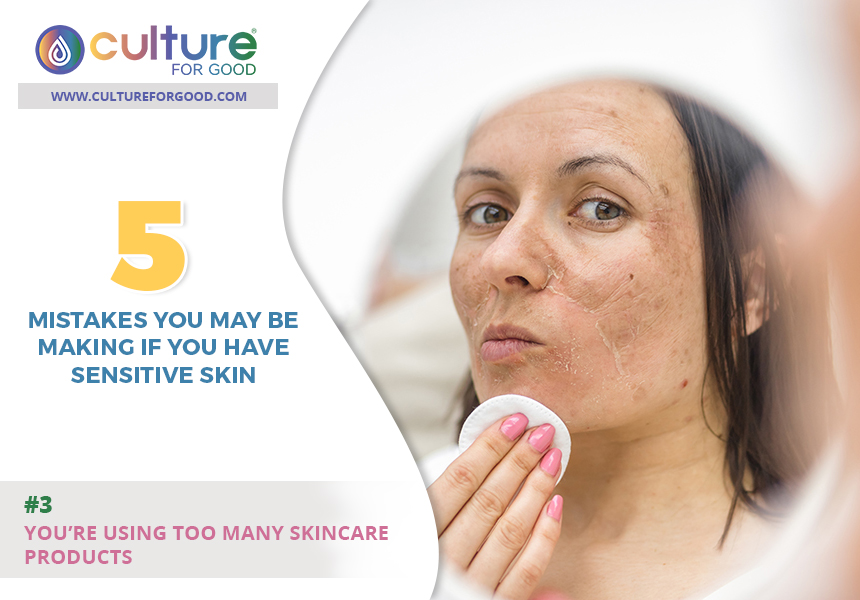
3You’re Using Too Many Skincare Products
It can be tough when you see the latest and greatest product on social media (or even an at-home DIY skin mask) and try it only to see it has exacerbated skin redness. The issue is twofold. One, the greater number of products you use, the greater number of ingredients there are, so the bigger the chance that something will cause a reaction in a sensitive complexion. Two, many people use creams that they think are moisturizers but have actives in them, like retinol or alpha hydroxy acids.
Look for words like retinol, retinaldehyde, glycolic, lactic, or mandelic acids; they can be hidden in everything these days. Therefore, you may be using two creams packed with anti-aging ingredients, and the double layer can irritate you. Make sure that you’re using a plain or basic lightweight moisturizer, which means that there are no active ingredients that are designed to treat acne or have an anti-aging purpose. If you use products that contain these actives, you can apply this moisturizer on top, and if needed, you can also smooth on a moisturizer before using these products for extra sensitive skin.
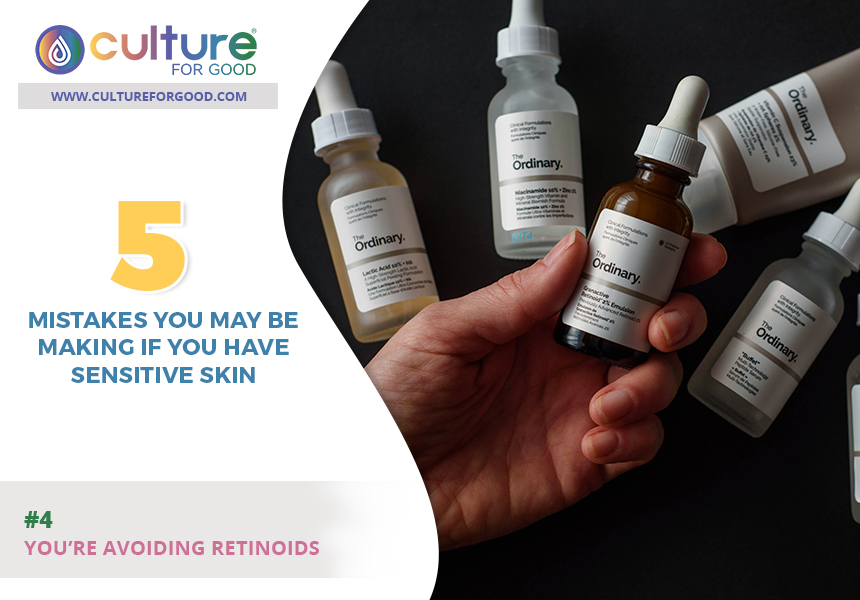
4You’re Avoiding Retinoids
Retinoids are vitamin A derivatives, and you’ve likely heard about these so-called gold-standard skincare ingredients. When applied to the skin, retinoids increase the turnover of skin cells and stimulate collagen production, revealing brighter skin underneath and reducing the appearance of wrinkles. Their downside is that they’re known for their side effects, namely redness and peeling, which often happen initially due to the increased turnover when the skin hasn’t become accustomed to the treatment. Therefore, you might think that having sensitive skin disqualifies you from a retinoid, but it doesn’t.
The solution is retinaldehyde, which is a precursor to a retinoid. Because skin enzymes need to first convert it into retinoic acid (a type of retinoid), it is not as strong, thus a more gentle wrinkle smoother. As long as you use a small pea-sized amount of it, work it up gradually, and moisturize after, you can still use a vitamin A product on your skin.
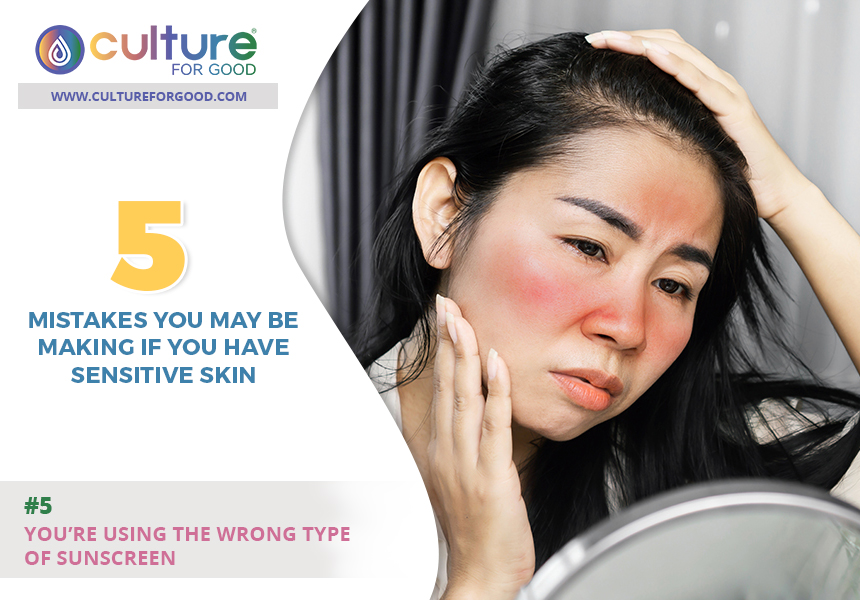
5You’re Using The Wrong Type Of Sunscreen
The across-the-board rule is to use sunscreen with SPF 30 every day, rain or shine, as this will help protect you from sunburn, skin cancer, and premature aging. And if you’re following that diligently, look at the ingredients in your sunscreen. Ideally, for sensitive skin, they include zinc oxide or titanium dioxide.
Compared with chemical sunscreens, mineral ingredients tend to be less irritating and less reactive for sensitive skin types. Chemical sunscreens contain active ingredients, such as oxybenzone and avobenzone. In the past, people bristled at these formulas because they were known for leaving a white cast across the skin because of the minerals within. But they’ve come a long way. The particle size of these molecules has been formulated so much smaller now, and they can easily be rubbed in.
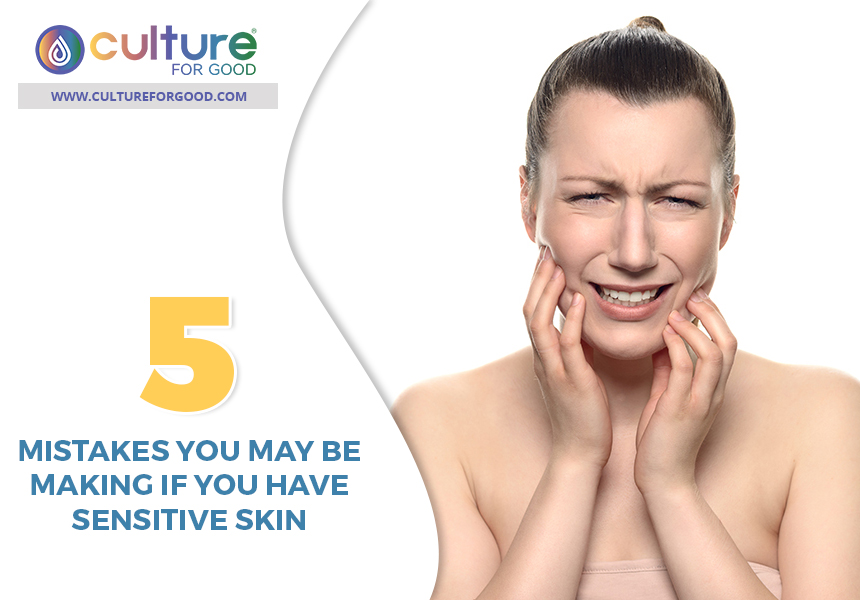
You merely glance at your face in the mirror, and you see something wrong – your skin erupts in redness, stinging, burning, or itching. When you have sensitive skin, that’s how daily life can feel. Diagnosed skin condition or not, no matter where you land on the sensitive skin scale, you’re going to want to re-evaluate your skincare routine. Today, we gave you common mistakes to avoid if you have sensitive skin.
First, we took a look at relying on “clean” products and using skincare products that are too harsh. Next, we discussed using too many skincare products. Then, we discussed relying on retinol and wrapped things up with using the wrong type of sunscreen. Now that you have finished reading, you can avoid these common mistakes people with sensitive skin make.


